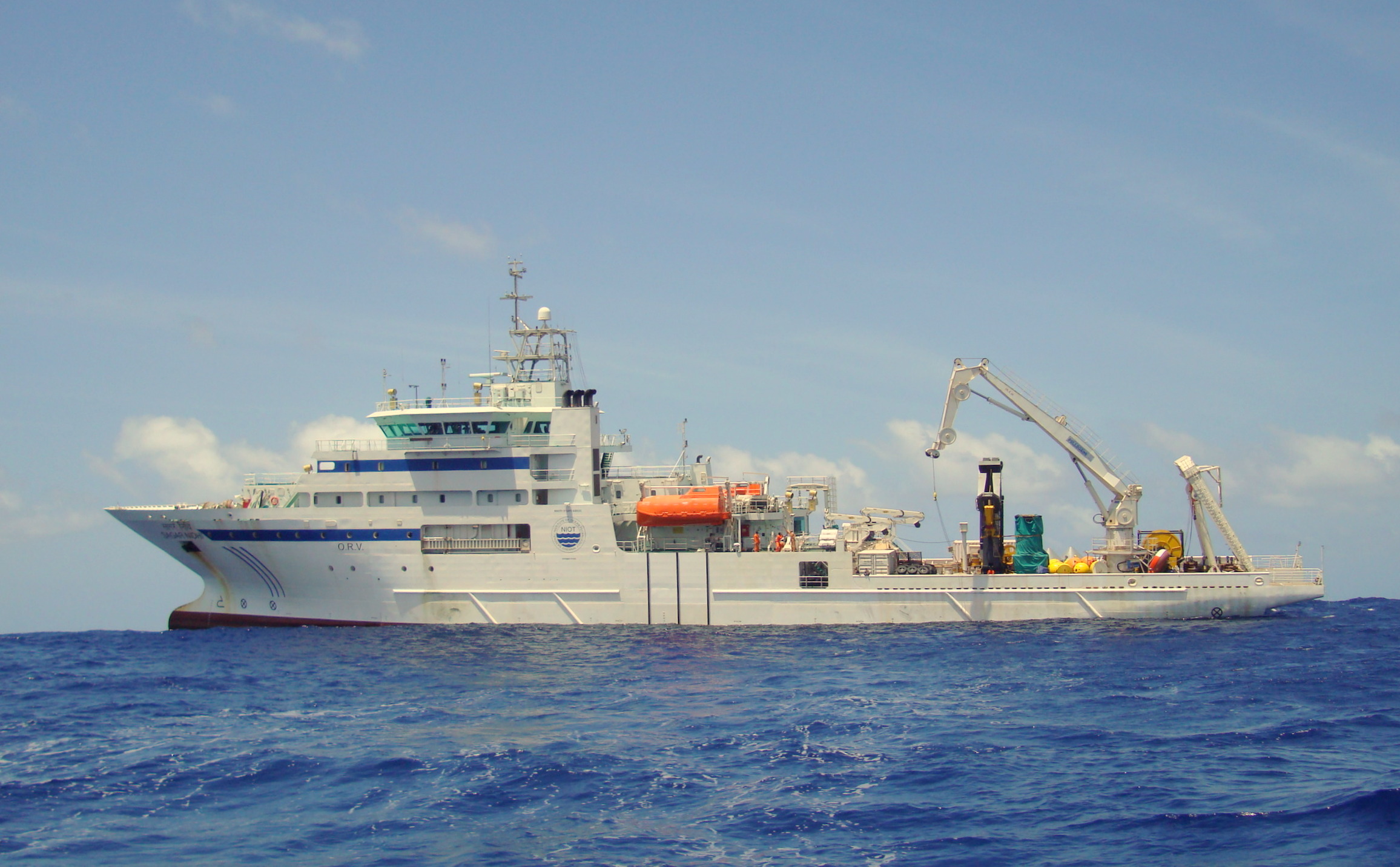Scientists from Bangladesh and Mauritius recently embarked onboard India’s research vessel Sagar Nidhi to participate in a joint ocean expedition. The event took place under the framework of Colombo Security Concave (CSC) between the nations of the Indian Ocean Region.
The maiden CSCO Oceanographers and Hydrographers conference held at Goa and Hyderabad in November 2022 results in the joint ocean expedition which id conducted by Indian National Centres for Ocean Information Services (INCOIS) under the ministry of earth sciences. During the joint ocean expedition, scientists will undertake research on ocean data to predict and manage changes in marine environment and variation in ocean parameters.
Sagar Nidhi
- Sagar Nidhi is an ice-strengthened multidisciplinary vessel operated by the National Institute of Ocean Technology.
- Sagar Nidhi is constructed at Fincantieri, Italy.
- Sagar Nidhi is 104metres long vessel.
- It is India’s third research vessel after Sagar Purvi and Sagar Paschimi.
Features of Sagar Nidhi:
- Sagar Nidhi is 104 m long and 18 m wide.
- It is powered with fully automatic diesel-electric propulsion.
- It is designed with blue water capabilities for the with ranges of up to 10, 00 nautical miles and for voyages lasting up to 45 days.
- It is equipped to launch submersible capsules to take scientists to the depth of six km below sea level.
Uses of Sagar Nidhi
- Geo-scientific, meteorological and oceanographic research can be carried out by Sagar Nidhi.
- This would be used by the government to launch tsunami monitoring systems.
- This would be used for the study of marine threats of operation including tropical and polar environment.
Colombo Security Conclave
- CSC was formed in 2011 as a trilateral maritime security grouping of India, Sri Lanka and Maldives.
- CSC welcomed Mauritius as a fourth member at the first meeting of national security advisors.
- Bangladesh and Seychelles attended as observers and have been invited to join the group.
Goals:
The fifth meeting of national security advisors of CSC identified key areas of cooperation to enhance and strengthen regional security in the following five pillars:
- Maritime Safety and Security.
- Countering Terrorism and Radicalization.
- Combating Trafficking and Transnational Organized Crime.
- Cyber Security, Protection of Critical Infrastructure and Technology.
- Humanitarian Assistance and Disaster Relief.




 Which Painting is known as the Indian Mo...
Which Painting is known as the Indian Mo...
 Which Indian State was the First to Chan...
Which Indian State was the First to Chan...
 Govt To Launch CBDC-Based Food Subsidy P...
Govt To Launch CBDC-Based Food Subsidy P...








